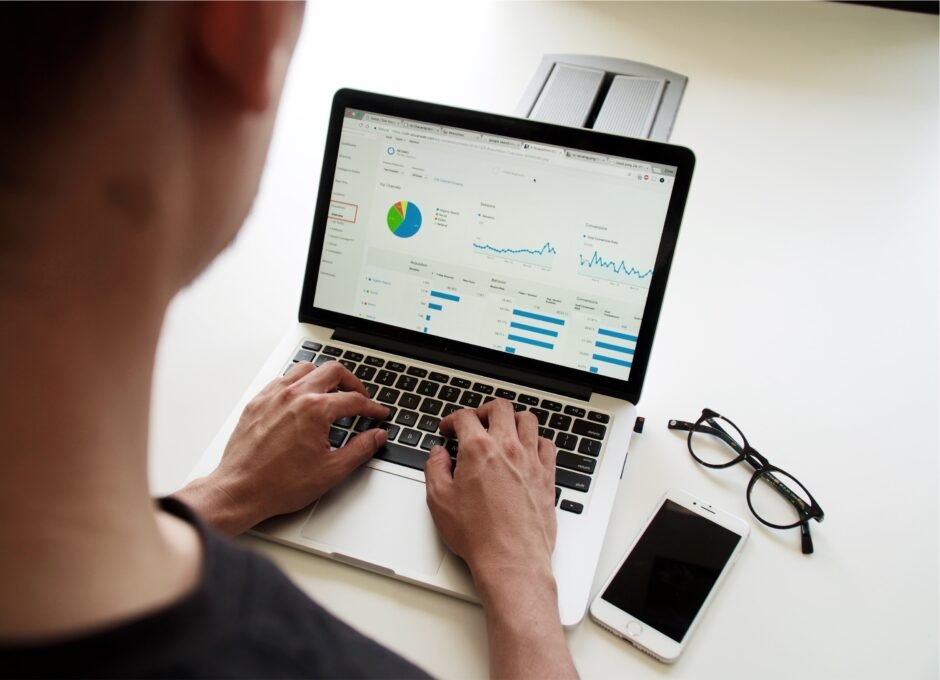Unlock AI’s power for marketing! Learn how to craft perfect prompts that generate high-impact ads, social media content, and sales copy. Get started today!
A Comprehensive Guide to Facebook Marketing Analytics

Learn the importance of Facebook marketing analytics and how it can help you optimize your marketing efforts.
Discover the benefits of Facebook marketing analytics, key metrics to track, and the tools available for analysis.
With the right approach, you can maximize your ROI and achieve your marketing goals.

Introduction
Facebook has become one of the most powerful platforms for businesses to reach and engage with their target audience.
With over 2.8 billion monthly active users, it offers immense opportunities for businesses to promote their products and services.
However, to make the most of Facebook marketing, it is crucial to understand and analyze the performance of your campaigns.
In this blog post, we will explore the importance of Facebook marketing analytics and how it can help you optimize your marketing efforts.
Why Facebook Marketing Analytics Matter
Facebook marketing analytics provides valuable insights into the performance of your campaigns, allowing you to measure the effectiveness of your marketing strategies.
By analyzing data such as reach, engagement, and conversions, you can identify what is working and what needs improvement.
This data-driven approach helps you make informed decisions and optimize your marketing efforts to achieve better results.
Benefits of Facebook Marketing Analytics
1. Measure Campaign Performance: Facebook marketing analytics enables you to track key metrics such as impressions, clicks, and conversions.
This data helps you understand how your campaigns are performing and identify areas for improvement.
2. Audience Insights: By analyzing demographic and psychographic data of your audience, you can gain a deeper understanding of their preferences and behavior.
This information can be used to create more targeted and personalized campaigns.
3. Optimize Ad Spend: With Facebook marketing analytics, you can identify which ads are generating the highest return on investment (ROI).
By reallocating your budget to the most effective campaigns, you can optimize your ad spend and maximize your ROI.
4. Identify Trends and Patterns: By analyzing historical data, you can identify trends and patterns in your audience’s behavior.
This information can help you anticipate their needs and preferences, allowing you to create more relevant and engaging content.

Key Metrics to Track
When it comes to Facebook marketing analytics, there are several key metrics that you should track:
1. Reach
Reach refers to the number of unique users who see your content. It is an important metric to measure the visibility of your campaigns.
By tracking reach, you can assess the effectiveness of your targeting and content strategy.
2. Engagement
Engagement measures the level of interaction users have with your content. It includes actions such as likes, comments, and shares.
High engagement indicates that your content is resonating with your audience and generating interest.
3. Click-Through Rate (CTR)
CTR measures the percentage of users who click on your ad after seeing it. A high CTR indicates that your ad is compelling and relevant to your target audience.
By optimizing your CTR, you can increase the number of users visiting your website or landing page.
4. Conversion Rate
Conversion rate measures the percentage of users who take a desired action, such as making a purchase or filling out a form.
By tracking conversion rate, you can assess the effectiveness of your campaigns in driving desired outcomes.
5. Return on Ad Spend (ROAS)
ROAS measures the revenue generated for every dollar spent on advertising.
By calculating ROAS, you can determine the profitability of your campaigns and make data-driven decisions regarding your ad spend.

Tools for Facebook Marketing Analytics
Facebook provides a range of tools to help businesses analyze their marketing efforts:
1. Facebook Ads Manager
Facebook Ads Manager is a powerful tool that allows you to create, manage, and analyze your ad campaigns.
It provides detailed insights into the performance of your ads, allowing you to make data-driven decisions to optimize your campaigns.
2. Facebook Pixel
Facebook Pixel is a code snippet that you can add to your website to track user behavior and conversions.
It provides valuable data on user actions, allowing you to measure the effectiveness of your campaigns and optimize your targeting.
3. Facebook Insights
Facebook Insights provides in-depth analytics about your Facebook Page, including audience demographics, reach, engagement, and more.
It helps you understand how your Page is performing and provides actionable insights to improve your content strategy.

Conclusion
Facebook marketing analytics plays a crucial role in helping businesses optimize their marketing efforts.
By analyzing key metrics and using the right tools, you can gain valuable insights into your campaigns, identify areas for improvement, and make data-driven decisions.
https://itexamsusa.blogspot.com/2023/12/mastering-matlab-programming-for.html
https://itexamsusa.blogspot.com/2023/12/monolith-vs-microservices-which-one-is.html
https://itexamsusa.blogspot.com/2023/12/publicprivate-keypairs-and-generating.html
https://itexamsusa.blogspot.com/2023/10/exam-dp-203-data-engineering-on.html
https://itexamsusa.blogspot.com/2023/10/ccnp-enterprise-advanced-routing-enarsi.html
https://itexamsusa.blogspot.com/2023/10/red-hat-certified-engineerrhce-ex294.html
https://itexamsusa.blogspot.com/2023/09/github-actions-to-auto-build-your.html
